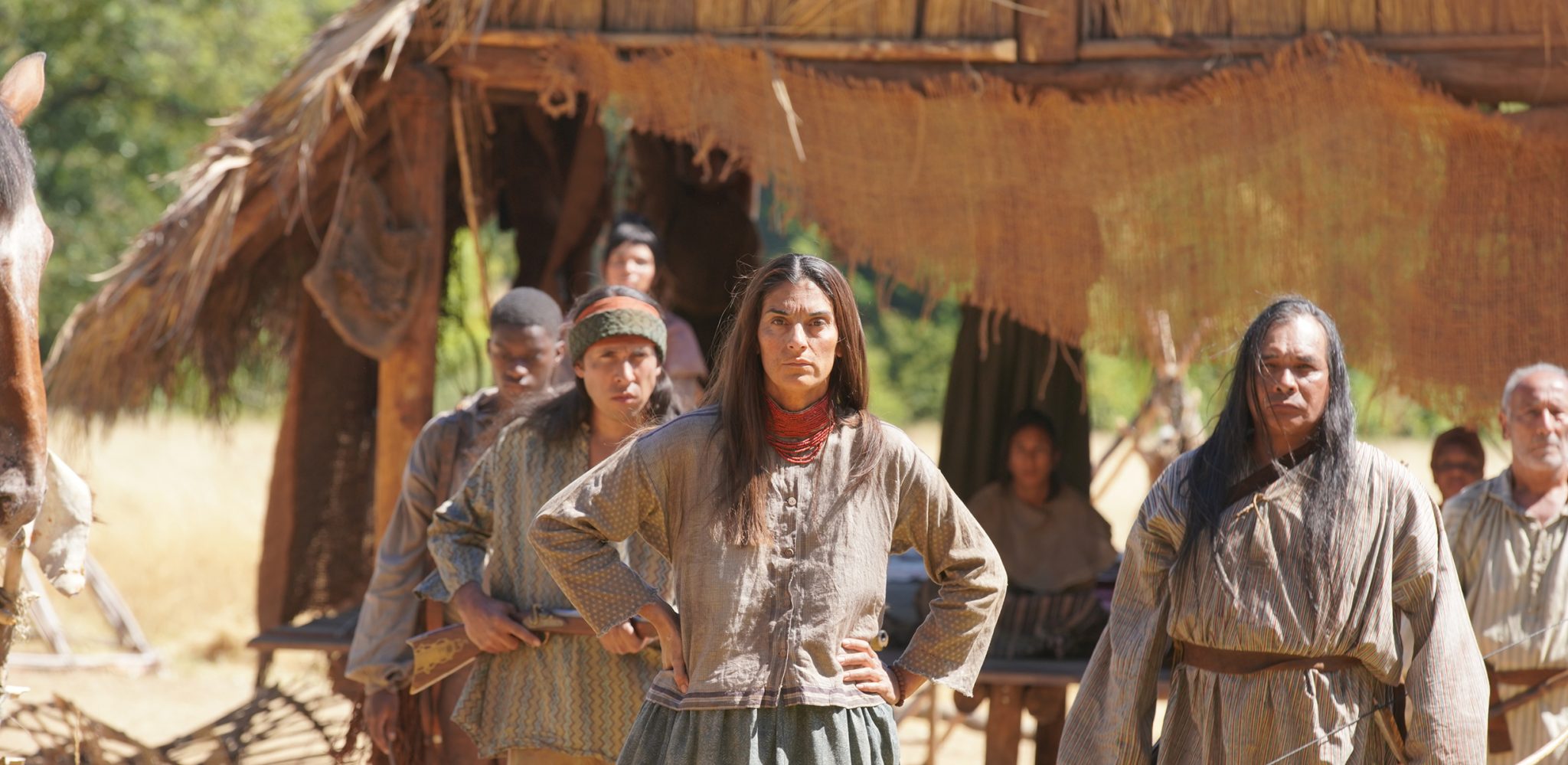A sweeping docu-series tracks the tentacled, centuries-long legacies of European colonialism and white supremacy
Sometimes, the worst descriptor for an artwork is ‘necessary’. Lazy critics reach for the imaginatively immediate, drawing from a barren landscape where adjectives like necessary jostle alongside trusted favourites such as urgent and searing. At worst such signifiers mask vapidity; mostly they reduce a work to a thin gruel to be dutifully swallowed down to signify awareness. Like many Black filmmakers before and after him, Raoul Peck’s oeuvre is habitually filtered through this impoverished lens. Exterminate All the Brutes (2021), his latest project, is a sweeping four-part HBO docu-series (now streaming through Sky Documentaries) that tracks the tentacled, centuries-long legacies of European colonialism and white supremacy across the globe. It builds on a hybrid approach Peck has previously, and arguably less effectively, deployed in films such as 1990’s Lumumba, la mort du prophète. In Exterminate All the Brutes, Peck recasts himself as both tortured exorcist and gruff narrator, interweaving his family’s Super 8 home-movies with archival footage, newsreel, spliced Hollywood clips (including some from his own films), watercolour-inflected animation, time-lapse graphics and dramatic reenactment. The collage, like the camera, is his weapon.
Neutrality is not an option, Peck asserts in a narrative that alternates between sonorously personal recollections and the detached citations of historical players, witnesses, revisionists, scholars and subjects. Throughout, Peck returns to three foundational texts; Haitian-born academic Michel-Rolph Trouillot’s Silencing the Past (1995), Sven Lindqvist’s Exterminate All the Brutes (1992, whose title is a Conradism taken from Heart of Darkness), and Roxanne Dunbar-Ortiz’s An Indigenous Peoples’ History of the United States (2014). These texts are Peck’s lodestars, and the debt he owes to their authors in developing his own political consciousness is affectingly clear.
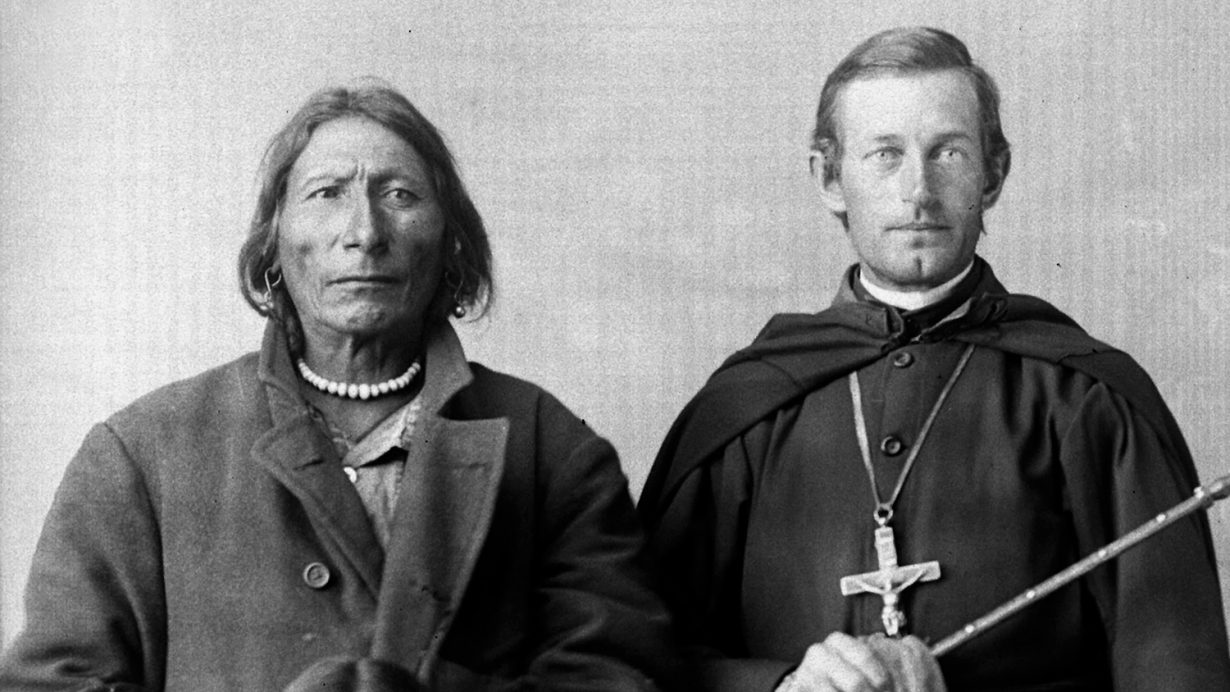
Trouillot wrote of the ‘savage slot’, the inferiorised figure of the Savage as a conceptual repository for all that Western man was not. The boundaries of such a slot would be made and remade, but the persistent idea of the Savage was used to cohere and justify colonial violence, domination, and expansion. For the Western global imaginary, the Savage was necessary. In elucidating this, Peck offers a perspective that rises above the anti-racist glut which usually climbs to the top of streaming-platform viewing figures. Exterminate All the Brutes arrives during our febrile time of terminal culture war – another of our forever wars – rebuking a Eurocentric framing of glorious conquest which has now, in certain liberal quarters, curdled into an impotent guilt. But Peck isn’t interested in guilt or guilty parties. ‘I have no complaints’, he explains. He just wants to understand, a thirst recalling Fanon’s final prayer in 1952’s Black Skin, White Masks, ‘O my body, make of me always a man who questions!’. The result is a series that is as interested in what we already instinctively know about the world as it is in what we may not know.
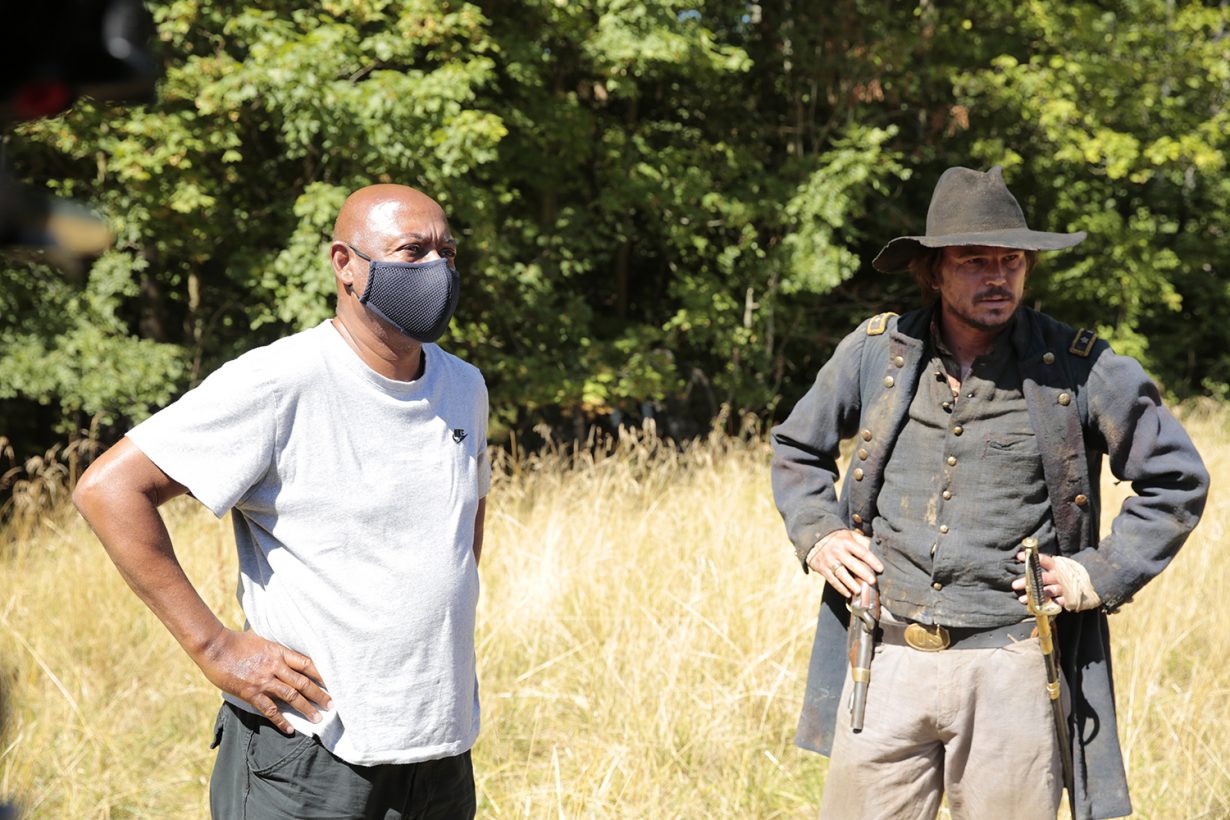
Peck leads viewers through a collage of the world-historical, through episodes with titles such as ‘Who the F*** is Columbus?’ and ‘The Disturbing Confidence of Ignorance’. We are shepherded through a fractal timeline, bouncing from the Crusades to the Middle Passage, from the Trail of Tears to Nazi concentration camps and waves of refugee crises. The contemporary manifestations of these violences are laid bare. There’s but a stepping stone between the likes of Adolf Lüderitz – the nineteenth-century colonialist and ‘founder’ of German South West Africa – and Hitler. Their genocidal methods simply overlapped where their lives did not. From Namibia to Nazi-controlled Europe, the architects of extermination sometimes even share names. Peck also touches upon the former weapons-industry contractors who populate, and head, the US government’s defence departments. Modern military euphemisms expose further sordid connections; enemy territory is still referred to as ‘Indian Country’. The code-name for the operation and raid culminating in Bin Laden’s execution was Geronimo, a reference to the historical leader of Apache resistance who fought against both Spanish and American imperialism. Peck explicitly makes these links, proposing that ‘all US wars reenact fundamentally the Indian Wars’. His own reenactments provide continuity, particularly through Josh Hartnett’s various appearances as everything from treaty-violating General Thomas Sidney Jesup to a sadistic doctor and a monstrous Belgian rubber plantation owner.
Much of the series focuses on the starvation, slaughter, displacement, and cultural destruction Native Americans were subjected to under the banner of civilizational progress. Settler colonialism was naturalised in the Americas and deemed manifest destiny. To Peck, this, not the kidnap and enslavement of African peoples, is the original sin of the world’s only remaining superpower. This is further teased out through figures such as Bartolomé de Las Casas, a Spanish missionary who lamented the brutality visited upon the Indigenous populations of the Americas at the hands of conquistadors. This was an affront he struggled to reconcile with his faith. Instead, he advocated for an alternative labour-force, one considered theologically irredeemable and more animal than human.
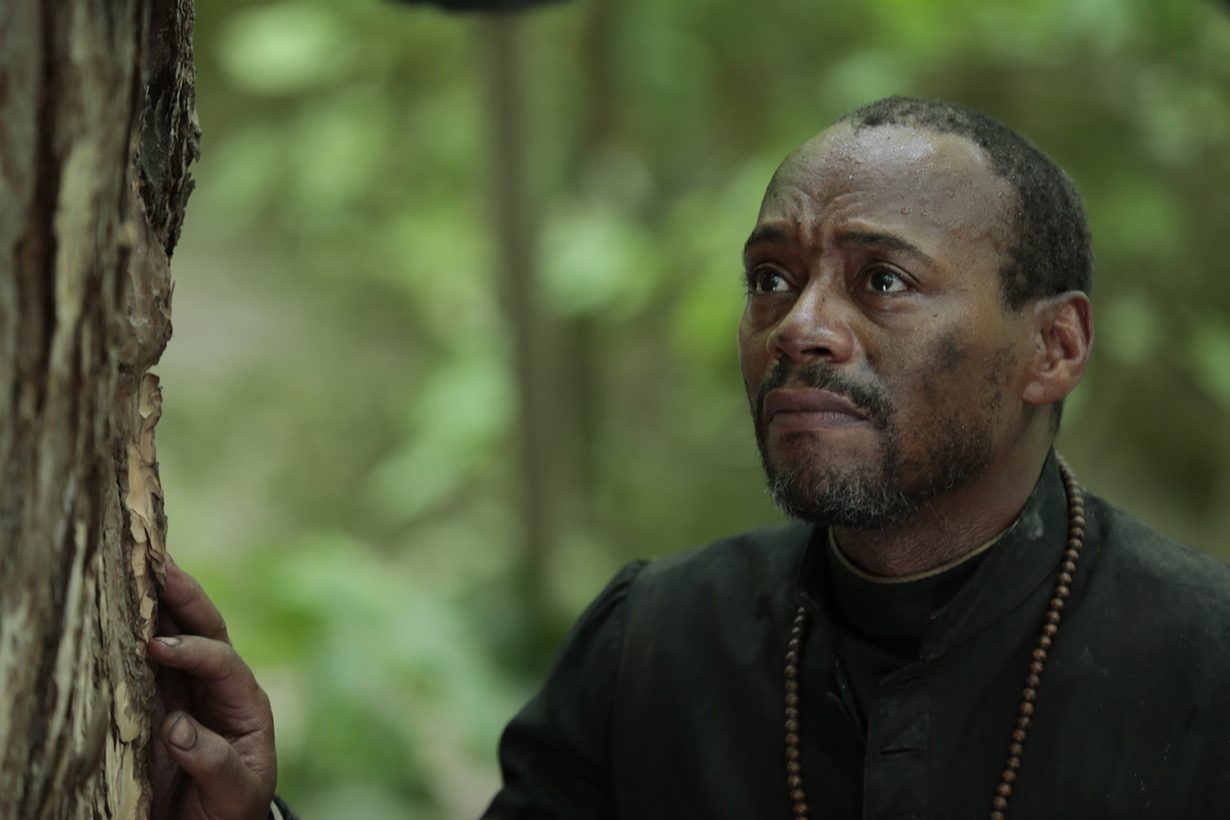
The African was drafted into this polluted schema of ‘divine election and damnation’, to invoke Sylvia Wynter. The land was to be cleared of the Indigenous and toiled by the African, against the backdrop of the Age of Enlightenment’s extolled humanism. Some may already be familiar with these contradictions, but Peck unravels them for a wider audience, complete with his own brand of gnarled humour. Exterminate All the Brutes arrives with an accompanying list of ‘Re-education Materials’, a kind of decolonial ‘mood cloud’ curated by Peck himself. I wasn’t surprised to find Aimé Césaire’s poetry included, but perhaps his 1950 essay Discourse on Colonialism would have been a better fit, if only for its blistering analysis, which frames the horrors of the Holocaust within Europe’s borderlands as the logical endpoint of ‘colonialist procedures which until then had been reserved exclusively for the Arabs of Algeria, the coolies of India, and the blacks of Africa’. Peck leans on this analysis, reflecting on how the strategies of extermination enacted on Native American inspired Hitler’s Final Solution.
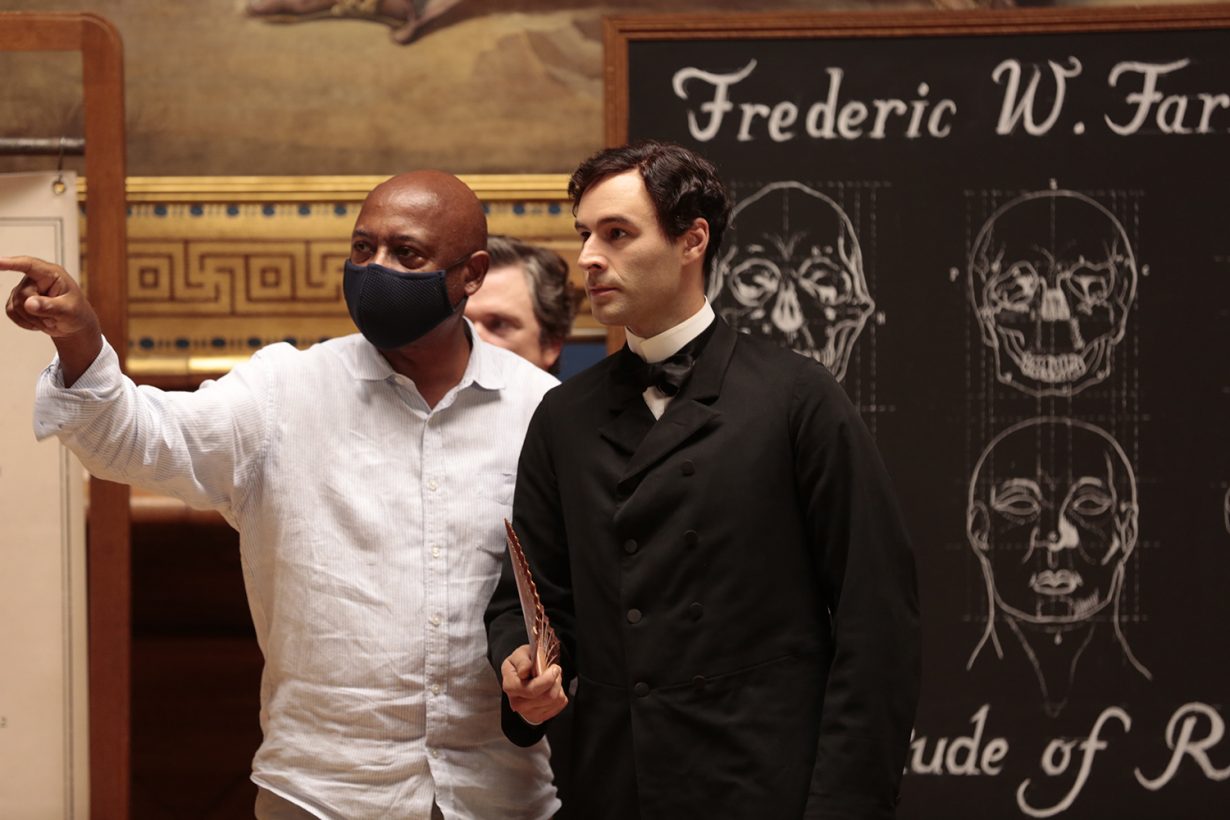
Visually, Peck impresses, blurring the lines between PBS special, experimental arthouse, and a history of cinema itself (from 1939’s Wizard of Oz to Claude Lanzmann’s Shoah, 1985, and The Wolf of Wall Street, 2013). At times, the effect is hammy, with one especially heavy-handed reenactment depicting the English cleric Frederic Farrar promoting the racialist doctrine of social Darwinism to the anger of a modern, diverse audience. Elsewhere, Peck is too beholden to the language of conventions and courts. Genocide is one term the series defines repeatedly and uncritically. In 2019, Turkish president Recep Tayyip Erdogan threatened to recognise the genocide of Native Americans, in response to a US Senate vote in favour of recognising the Armenian genocide. You can turn anything into a political football, even genocide. Clearly, pulling apart at the seams of language won’t make it any less contested.
What does Exterminate All the Brutes’s acclaimed reception reveal about a cultural moment that has so neatly aligned with Peck’s long-standing preoccupations? Though Peck teamed up with HBO for 2005’s Sometimes in April, his film portraying the Rwandan genocide, it’s hard to imagine a work like Exterminate All the Brutes reaching such a mass audience even a decade ago. In the final installment, Peck calls the very existence of the films a miracle. There’s some truth to this, at least in their quieter moments. In one scene, archival footage of a colonial ‘human zoo’ loops. A white man pats the head of an African woman. Her eyes flash with barely suppressed irritation, and she bats his hand away. Peck attentively highlights this moment of refusal, a welcome change from the sloppily bombastic. Colonialism’s apologists stress that their heroes were men of their time, but so were the colonised. The colonised were sure of their humanity and their dignity. They knew they were not brutes, and this distinction matters. The history of revolt, rebellion and batted hands attests to the irrepressible nature of that knowledge. ‘Haiti created the possible’, Peck reminds us, detailing how the Haitian Revolution ushered in the liberation of Latin America, rendering the unthinkable a reality. One wonders if such an ambitious project could secure mainstream greenlighting if it focused on the uprisings and emancipatory struggles that made colonialism untenable, or if it even mentioned the contemporary forms of settler colonialism that can be witnessed globally from Western Sahara to Palestine (one of the show’s most glaring omissions).
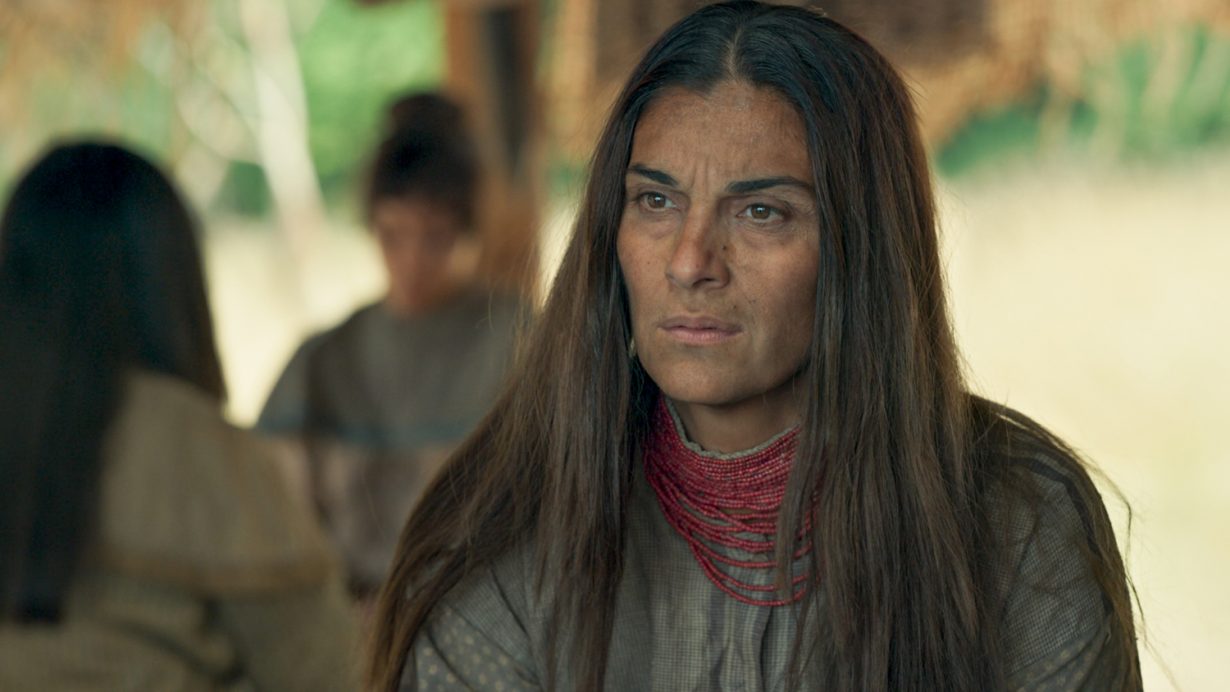
In the final episode, entitled ‘The Bright Colours of Fascism’, rising nationalism and right-wing hegemony is posited as another inheritance of colonialism. Burning torches are juxtaposed against burning rainforests, a dismal vision of a global order that’s increasingly unable to bear the costs of its profit-oriented contradicitons. In 2019, researchers found that European settlers slaughtered so many of the Indigenous populations of the Americas that the global climate was markedly changed, contributing to a Little Ice Age. Between Columbus’ arrival in 1492 and 1610, an estimated 56 million people were killed, advancing the first major change in the Earth’s greenhouse gases. It’s difficult to watch Peck’s montage of felled trees without a sense of bitter irony. In their failed campaign to exterminate all the brutes, imperialist powers may have hastened their own – and our collective – civilisational destruction.
Raoul Peck, Exterminate All the Brutes (2021) is streaming through Sky Documentaries
